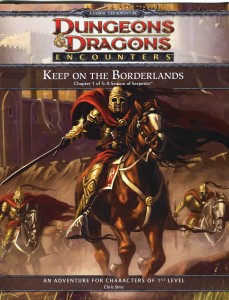While the Dungeon’s Master team enjoys some well-deserved vacation time, we’re breaking out the greatest hits and shining a spotlight on a few of our favourite articles from 2010. We’ve searched for hidden gems that our newer readers might have missed and our long-time readers will enjoy reading again. Enjoy a second look at these greatest hits from Dungeon’s Master.
When we were deciding which articles would make the cut and be included as our Greatest Hits of 2010 I kept coming back to the 6 Convention Tips for Players and DMs. After rereading them and I realized two important things.
1) Although the lists were inspired by things I witnessed (or regrettably didn’t witness) at a convention last year, most of these tips are applicable at any D&D game.
2) These tips are just as relevant today as they were when we first published them 10 months ago.
Upon making these realizations I knew that I had to include them in our Greatest Hits. But rather than run them as two separate articles I felt they’d pack more of a punch if they were combined into a single Greatest Hits article.
No matter how long you’ve played D&D or how many times you’ve been the DM there’s always room for improvement. Whether you’re playing a public game at your FLGS like LFR or D&D Encounters, or you’re playing a private game at your dining room table, be mindful of the things I’ve mentioned in the article below. If we all follow these simple rules games will run smoother and things will be better all around.
Playing with a tight-knit and experienced group in my regular weekly home game, we adhere to most of these points. However, I have noticed a couple of these things as big issues when I’ve played D&D Encounters on Wednesdays. Specifically #2) know your PC, and #5) plan ahead.
I realize that most of us are still getting used to D&D Essentials so there is going to be a learning curve on how the powers work. But if you’ve created your own character before the game started then it’s your responsibility to learn what all of the powers do and how to use them. Come on people, the PCs are only level 2 you don’t even have that many powers.
After playing a marathon session just this past Wednesday at D&D Encounters I’m also getting really frustrated by players that just don’t pay attention. First they have no idea when they’re going to act in the initiative (even though they always go after the same person). When their turn comes up they haven’t given any thought to which power they’re going to use. When it’s your turn, if you can’t decide what to do in 5-10 seconds then your default action should be basic attack or double move.
Take a look at our 6 tips for players and 6 tips for DMs and let us know of any other tips that you’ve found helpful at your table in the comment below. By sharing these pointers we all work together to make the D&D experiences a better one.
